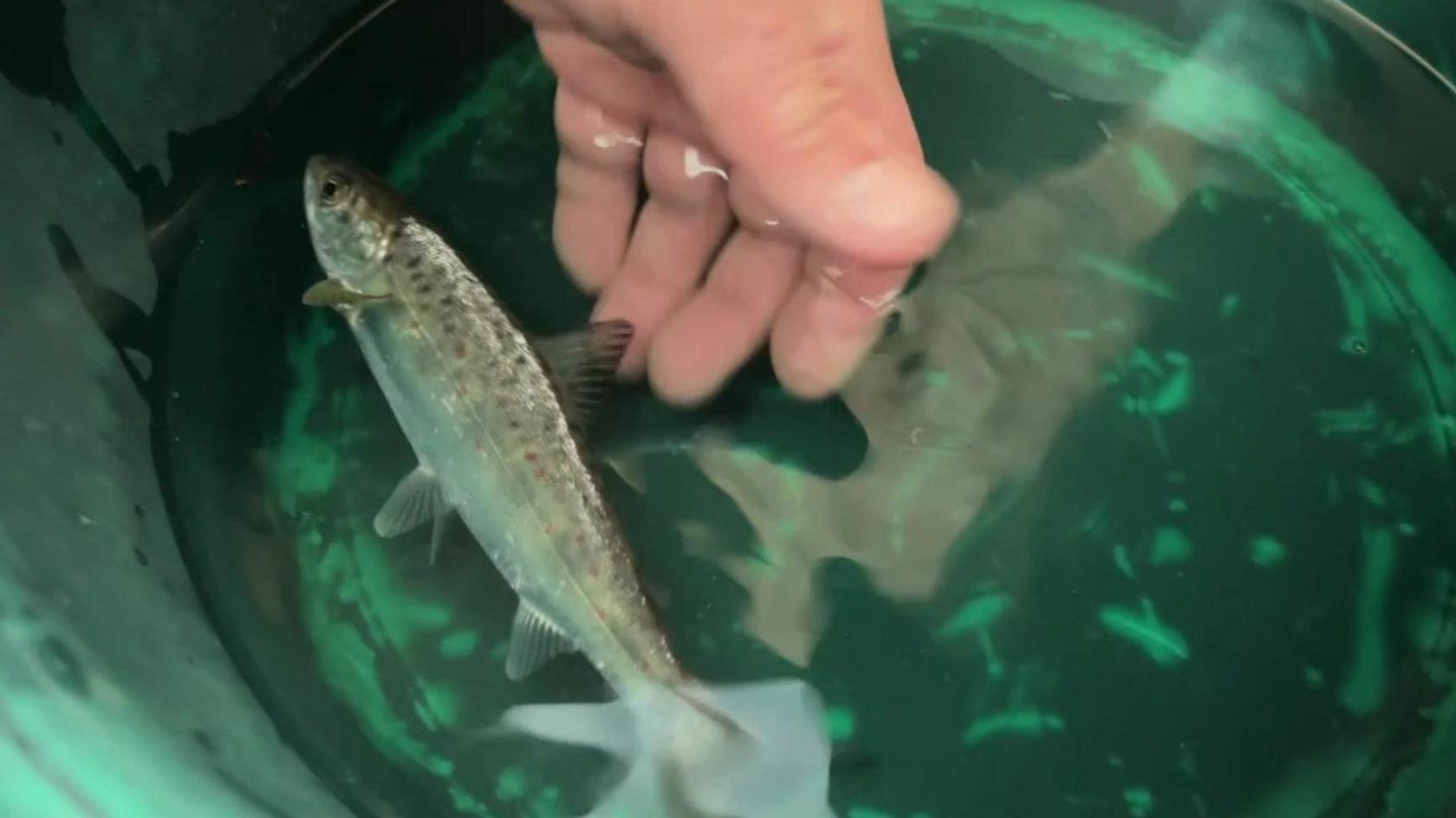Record low salmon count in river for second year
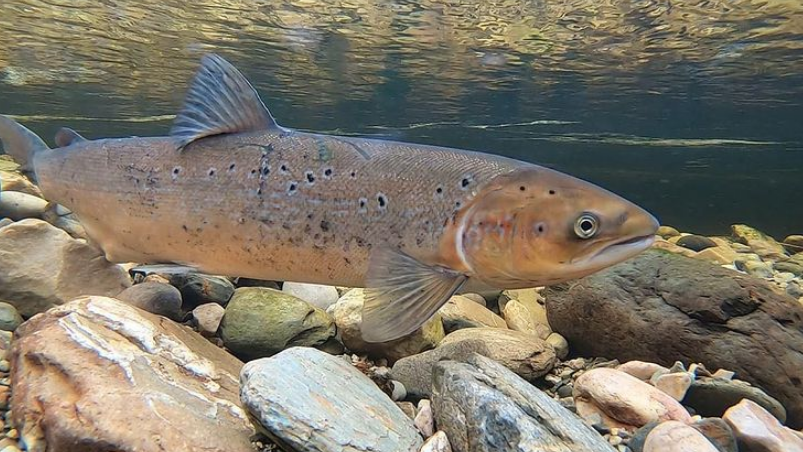
Atlantic salmon are classified as "vulnerable" in English chalk streams
- Published
A river has recorded a "catastrophic" salmon count, hitting a record low for a second successive year, a charity has said.
Since 2002, the Game & Wildlife Conservation Trust (GWCT) has spent about four weeks in late summer catching and tagging juvenile Atlantic salmon in the River Frome in Dorset.
Numbers fell to 3,226 this year, from last year's low of 4,593.
The charity said the species was at risk from climate change and fishing practices at sea, combined with algal growth and sediment in the River Frome.
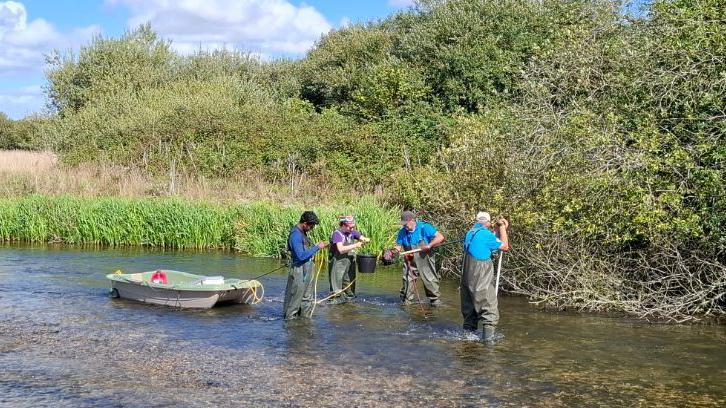
The charity caught and tagged young salmon in the River Frome in late summer
Dylan Roberts, head of fisheries at GWCT, said similar issues were affecting other rivers and could lead to UK extinction in the next 30 years.
He said: "My team has seen first-hand the changes to the physical nature of the River Frome.
"In recent years, we have seen a huge increase in the growth of algae between spring and autumn which smothers the riverbed, shades and then reduces the growth of plants like water crowfoot, which are crucial habitats for juvenile salmon and the insects upon which they feed.
"We've also seen increases in the quantity of sediment, which is mud running from the riverbanks and ploughed fields into the river where it smothers and suffocates salmon eggs."
He said algae thrived on fertilisers, sewage and septic tank discharges and the trust was working on solutions with farmers.
'I thought I was too young for breast cancer'
- Published22 hours ago
Girl is department's 1,000th radiotherapy patient
- Published1 day ago
World record Christmas elf gathering attempt
- Published6 hours ago
Ian Baggs, who farms near Wareham, said he had planted deep-rooted grass along the river to avoid silt as well as run-off from his previous maize crop.
He added: "I'm happy to look at doing more... but like many I need adequate financial support and expert guidance."
Colin Smart, from the Environmental Farmers Group Dorset, said: "Farmers do care about the environment and can make a real difference but also need to produce food and make a living.
"They need adequate compensation to put the right measures in place."
The GWCT count took place between 22 August and 17 September.
In 2023, Atlantic salmon were reclassified as "endangered" in Great Britain.
However, salmon in English chalk streams, such as the Frome, were given a separate regional classification of "vulnerable", according to a parliamentary briefing paper, external.
Get in touch
Do you have a story BBC Dorset should cover?
Related topics
See also
- Published13 November
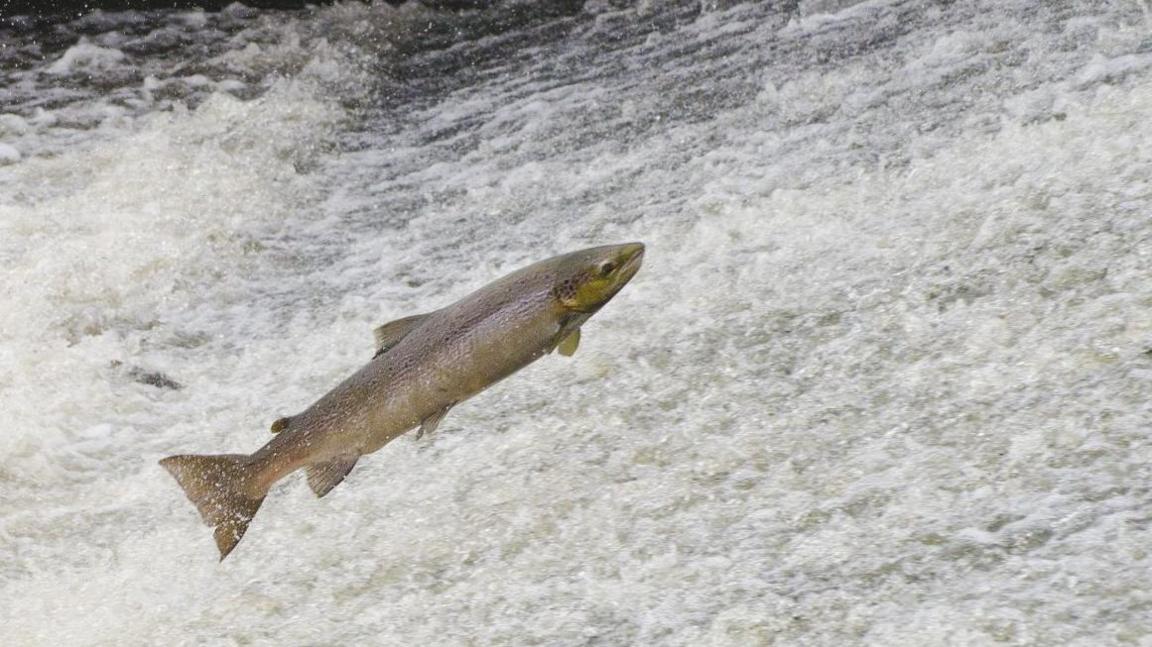
- Published4 August
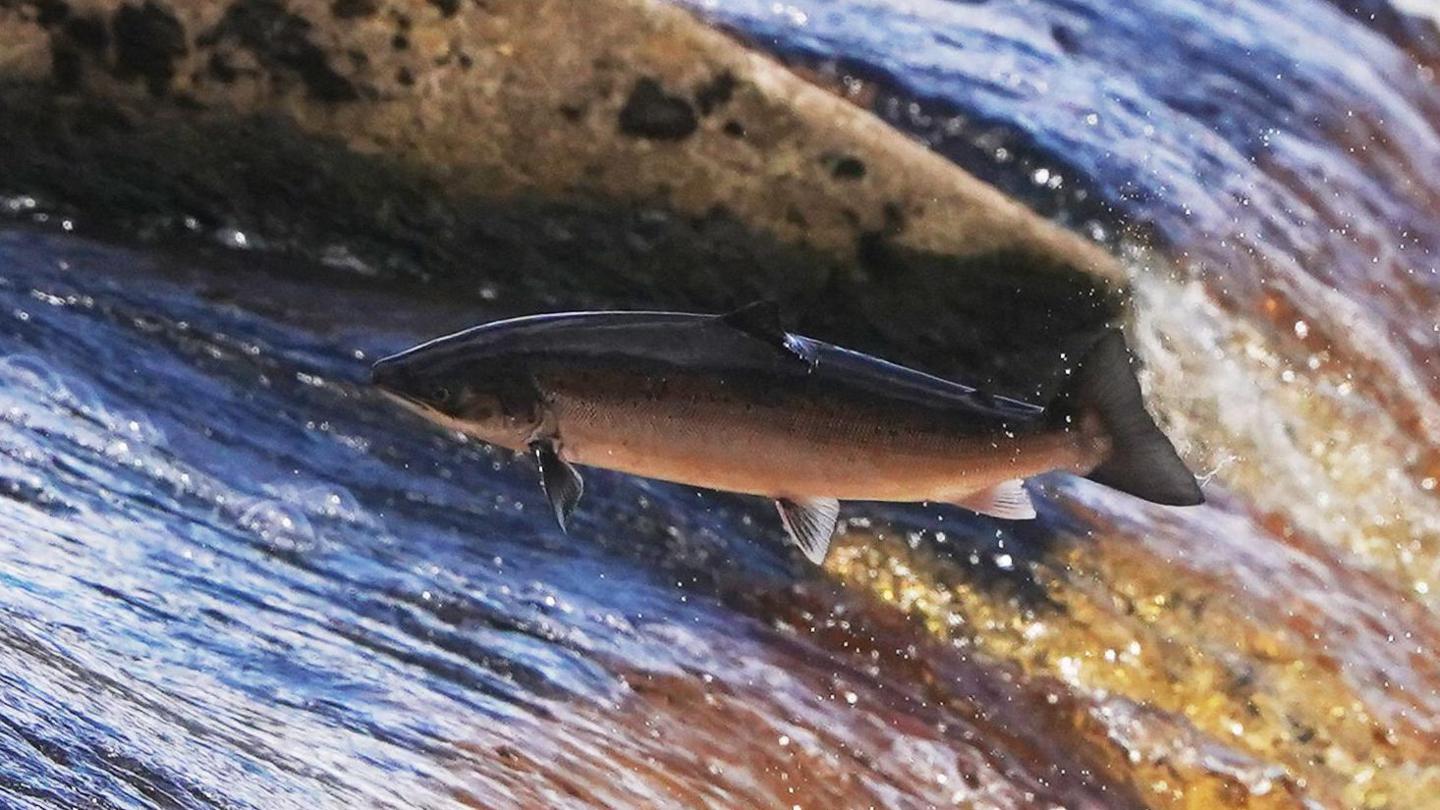
- Published9 October 2024
